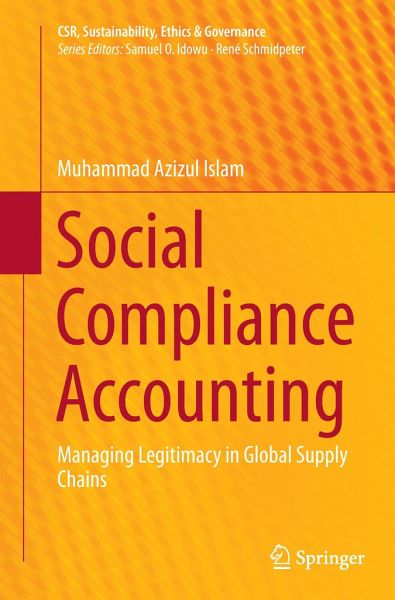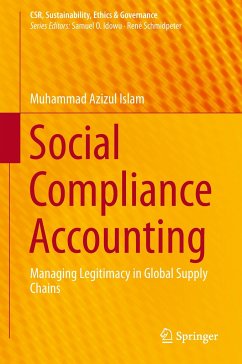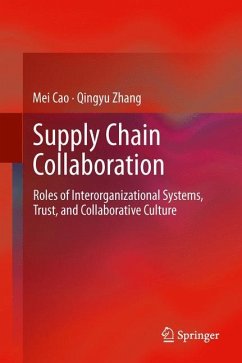
Social Compliance Accounting
Managing Legitimacy in Global Supply Chains
Versandkostenfrei!
Versandfertig in 6-10 Tagen
38,99 €
inkl. MwSt.
Weitere Ausgaben:

PAYBACK Punkte
19 °P sammeln!
This book covers key discussions involving major US and European multinational companies (MNCs) that source products from suppliers in developing countries. Due to the transfer of production from developed to developing nations, there is an urgent need to establish social compliance as a new form of Corporate Social Responsibility (CSR) and a means by which MNCs can meet expected social standards. The cases described are internationally relevant and can be seen to reflect or represent the behavior of many MNCs and their suppliers in developing nations. The discussion offers essential insights ...
This book covers key discussions involving major US and European multinational companies (MNCs) that source products from suppliers in developing countries. Due to the transfer of production from developed to developing nations, there is an urgent need to establish social compliance as a new form of Corporate Social Responsibility (CSR) and a means by which MNCs can meet expected social standards. The cases described are internationally relevant and can be seen to reflect or represent the behavior of many MNCs and their suppliers in developing nations. The discussion offers essential insights into how different levels of social compliance risk and pressure (including broader stakeholder concerns) move managers to adopt or embrace particular social compliance accounting, reporting and auditing strategies. The book will help readers to understand the major concerns, challenges and dilemmas faced by management in the supply chains of MNCs, and proposes measures that can be taken to resolve those dilemmas. Most importantly, it develops a systematic method of assessing the social compliance performance of suppliers to MNCs. This includes highly detailed accounts of the social compliance performance of suppliers within the clothing industry (in a developing nation) that supply goods to the extensive US and European markets. The book offers a valuable guide, not only for corporate managers but also for practitioners, researchers, academics, and undergraduate and postgraduate business students.













